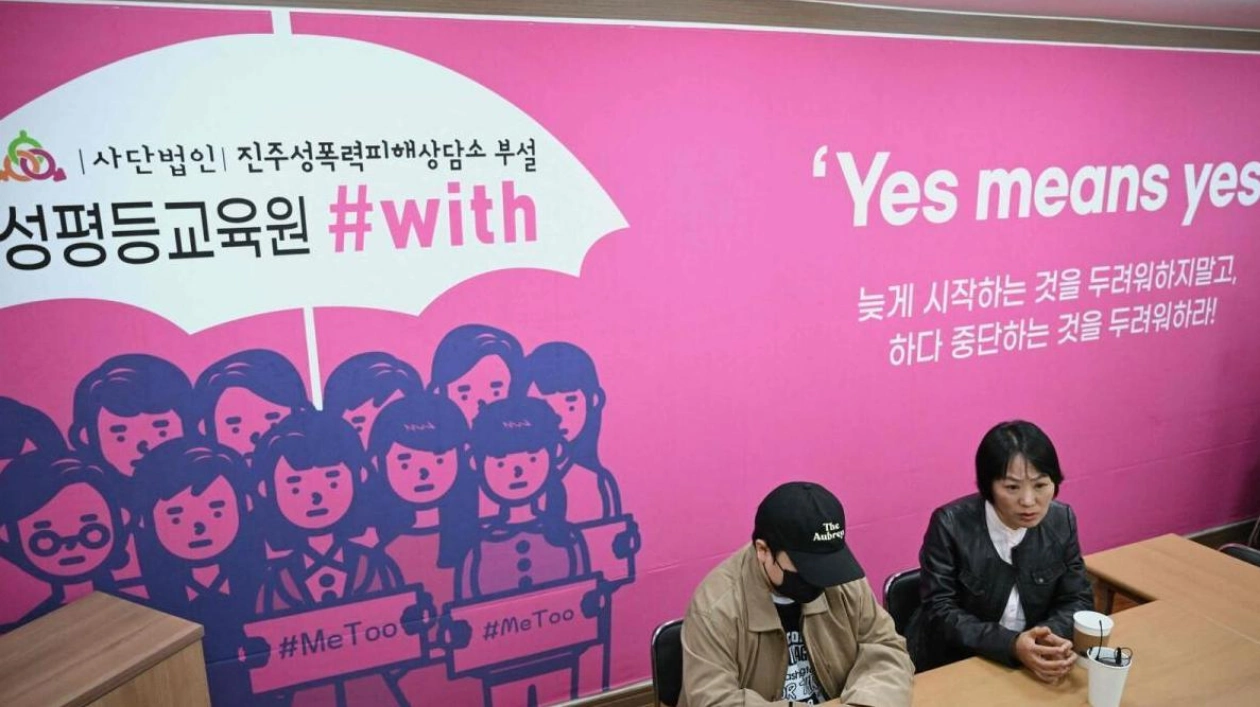Photo: AFP
No dating, sex, marriage, or having children with men: South Korea's extreme feminist movement '4B' has gained international attention, particularly in the wake of Donald Trump's victory in the US presidential election. In Korean, '4B' stands for the 'Four Nos': no dating, no sex, no marriage, and no childbearing with men. This movement emerged in South Korea during the mid-2010s, fueled by ongoing issues such as pay disparity, rigid gender roles, and a surge in cyber sex crimes and sexual violence against women. Despite its radical nature, it has largely remained on the fringes of society.
Adherents like Baek Ga-eul, 33, argue that the movement has enabled them to live as 'complete human beings, not just beings reserved for men or children.' The movement gained traction as South Korean women, who perform 3.5 times more domestic work per week than men according to official data, could no longer 'accept the expectation to perform both paid labor and the majority of household duties.' Additionally, women were increasingly frustrated with 'a male culture that pretends to be proper toward women while, behind closed doors, shares sex videos of their girlfriends with male friends.'
Following Trump's election on November 5, '4B' became one of the top trending search terms on Google in the United States and beyond, with search volume peaking on the interest scale, according to Google analytic data. Videos about the movement quickly spread on TikTok and Facebook, with footage of women shaving their heads in protest against Trump's victory and detailed breakdowns of the '4B' movement going viral.
The election was widely seen as a referendum on women's rights, especially after Trump appointed three conservative Supreme Court justices, leading to the end of national abortion rights protections. This made many American women 'realize that men do not regard women as equals,' activist Baek told AFP. 'How can women love, marry, or have children with men who so openly hate and disregard us?' she questioned.
South Korea, a wealthy country with one of the world's lowest birth rates and plummeting marriage rates, has seen nearly 42 percent of households headed by a single person, a figure likely to rise. A 2021 study by Yonsei University found that over 40 percent of Seoul residents in their 20s hadn't had sex in a year, with men citing a lack of partners and women a lack of interest.
Despite the movement's radical stance, many South Korean women are still participating in '4B' in their own ways, according to an adherent who goes by JH. Even among those not interested in feminism or unaware of '4B,' their actions inadvertently align with the movement's principles. Sexism remains deeply entrenched in South Korea, as JH, who was bullied at work for her involvement in the 'Escape the Corset' feminist movement, can attest. She eventually lost her job, a fate not uncommon for women in a misogynistic society.
Kang Ji-young, another '4B' participant, believes that 'boycotting men' is one of the most effective ways to highlight the severity of sexism in the country. The movement, according to Keung Yoon Bae, a Korean studies professor at Georgia Institute of Technology, has grown out of 'South Korean women's painful contemporary experiences.' It reflects the untenable nature of pre-existing patriarchal norms in light of the increasing number of high-achieving, well-educated women.
In the US election, voting patterns were strongly divided by gender across racial groups, similar to South Korea's 2022 presidential election, according to Sharon Yoon, a Korean studies professor at the University of Notre Dame. In South Korea, data indicates an increasing ideological divide between men and women, with young men leaning far more conservative, which helped propel President Yoon Suk Yeol to power after he promised to abolish the Ministry of Gender Equality.
This gendered divide in voting behavior is not unique to any one country but reflects a global trend of gendered backlash among economically precarious men, Yoon said. The rise of President-elect Trump will also trigger a strong response from American women, she added. Their expressions of solidarity with Korean women in the '4B' movement should be seen as one, but not the sole, manifestation of this emerging trend.
Source link: https://www.khaleejtimes.com






